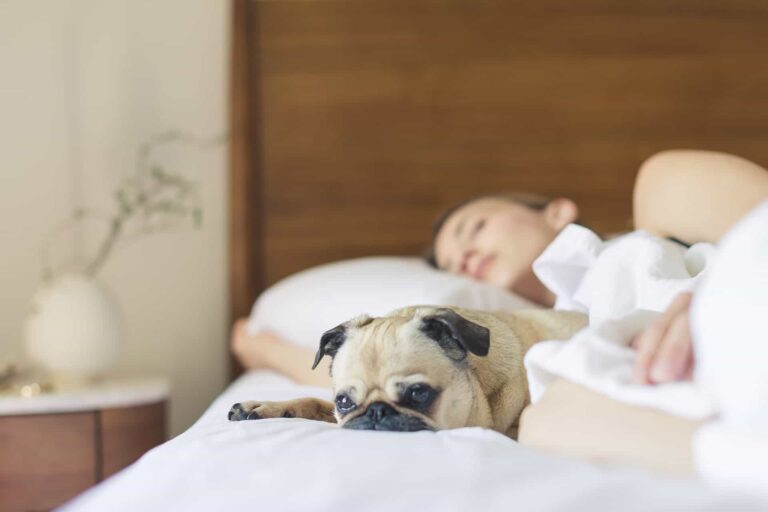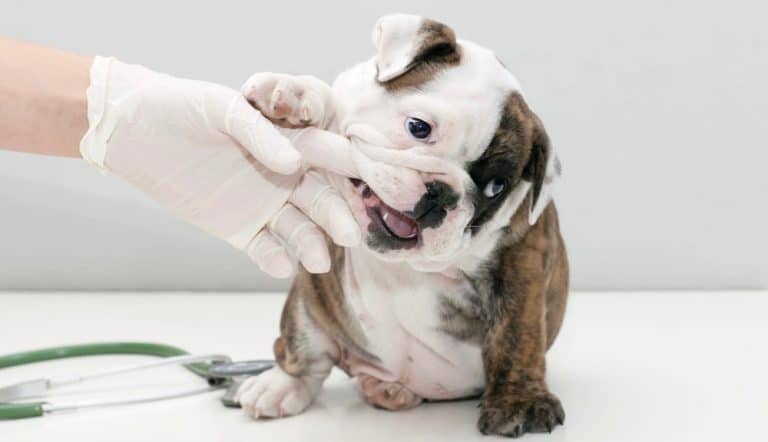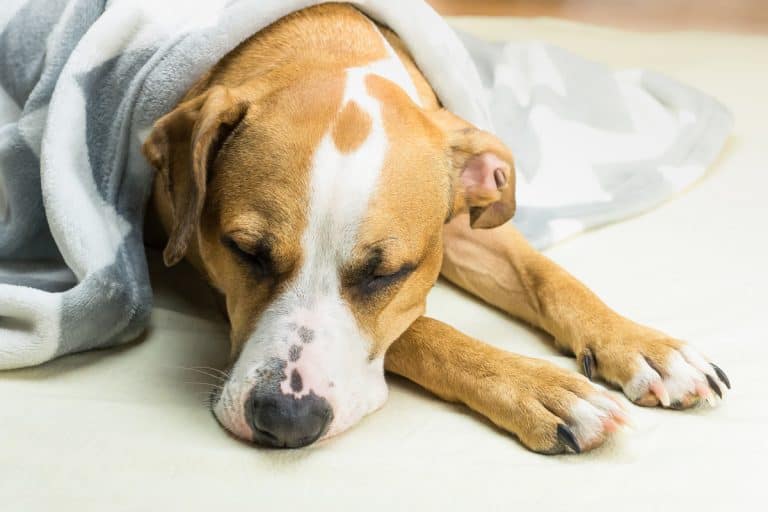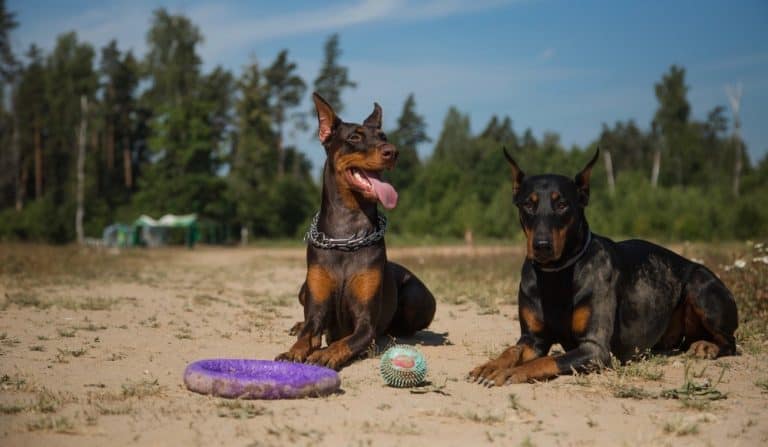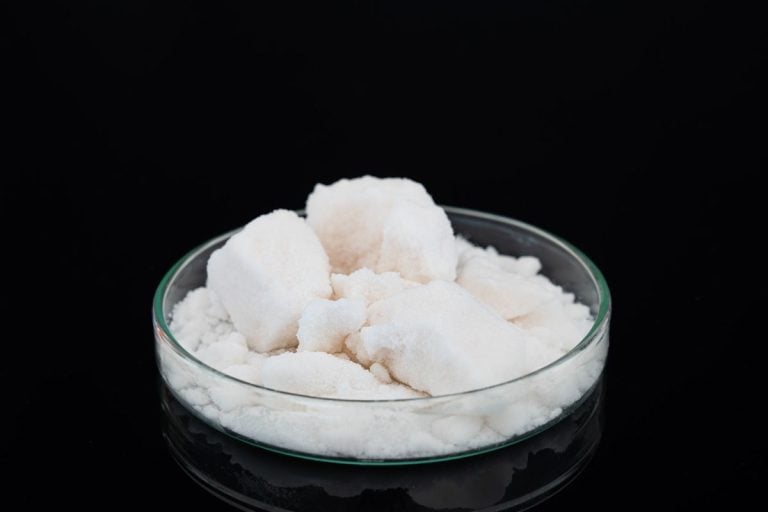Dog Won’t Drink Water After Surgery – How To Make A Dog Drink Water
Surgery can be a stressful experience for both you and your dog. If you have ever experienced this, you know that recovery from surgery may be just as stressful.
While tending to him, you may notice your dog won’t drink water after surgery.
The dogs must drink water and stay hydrated. Therefore, if you notice that he is not drinking water, you may be quite alarmed.
After surgery when your dog should be healing, is not a time to refrain from drinking water.
Human beings also have this problem when they have undergone surgery. Freshwater is essential to the survival of living beings.
The reason for this aversion to water may be attributed to several reasons, but one of the main reasons is because of anesthesia used in surgery.
In addition to not drinking water, your dog may also be lethargic and sick overall. You may notice that they have trouble doing ordinary tasks like standing up and using their muscles properly.
It is highly critical that you encourage them to consume water. Above all else, you should notify your veterinarian about the situation and accept the advice about your dog’s health.
This article will cover the main reasons for your dog not drinking water after surgery as well as ways you can handle the situation.
The Reasons For My Dog Not Drinking Water After Surgery
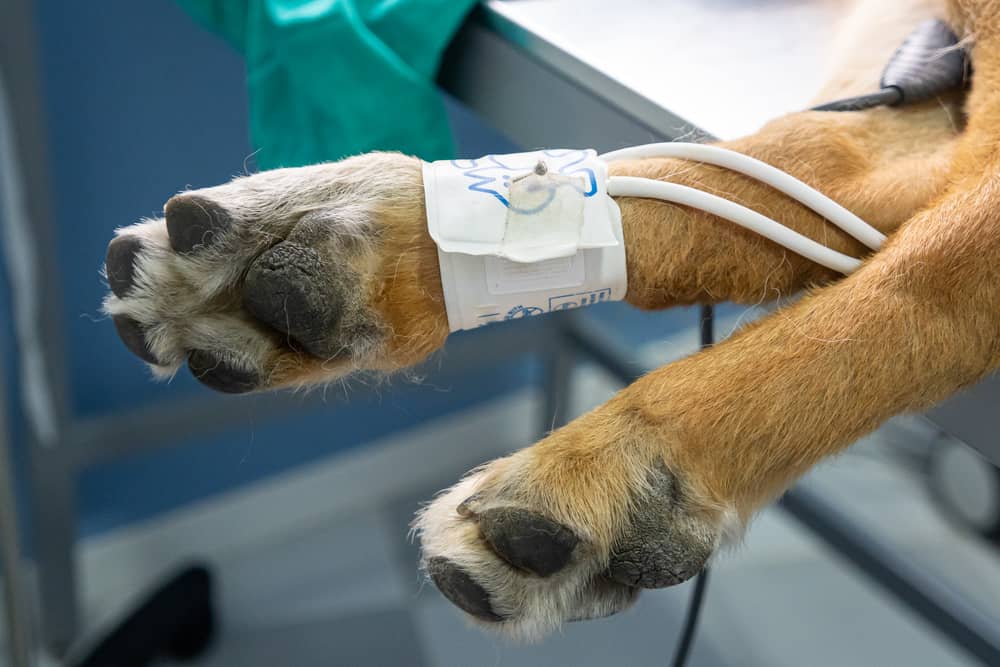
For surgery to be performed on your dog, the medical practitioner needs to administer anesthesia that would numb the pain or render him unconscious.
This is an invaluable method of conducting surgery because humans and animals would not be able to lie completely still during surgery.
Even though your dog may handle the anesthesia with no problem you may notice that he is experiencing a few negative side effects.
The following is a list of the most common side effects that may occur after anesthesia:
- No interest in water or food
- Difficulties keeping cool or warm
- Slow reflexes and grogginess
- Lethargy
- Vomiting and Nausea
- Changes in behavior
With modern science, there has been an improvement in anesthesia so that they do not give the dog as many side effects.
But you still need to think about the extra care and attention required for recovery after surgery and the discomfort that your dog may suffer.
Dogs are usually the most sensitive one day after surgery, and they will be the most tired after this time.
Some dogs take longer than 24 hours before they return to their usual selves. Dogs that are overweight take a longer time to recover because the body fat tends to have held the anesthesia.
Therefore, after surgery, the anesthesia lingers in their body for a greater amount of time, but after a while, it is discharged from the body and your dog is back to normal.
It is not surprising that your dog may be averse to eating and drinking water after surgery because of his lethargic and nauseous feelings.
Remember that force-feeding you do right after surgery can be detrimental and may cause vomiting. The most you can do right now is, do frequent health assessments and make him comfortable so that he can recover.
However, recovery is still important during this time and hydration is still a serious issue. In fact, most of the body’s processes require hydration.
So you should try to get your dog to drink water so that there will be no organ damage and greater health issues.
What Are The Signs Of Dehydration In Dogs?
Dehydration occurs when your dog loses electrolytes and water at a faster rate than they are consuming it.
Because of this, serious issues are happening in the body that affect joints, body temperature, digestion, and internal organs.
Dogs need water for the proper functioning of their bodies. If your dog loses more electrolytes than he is taking in then the body will begin to deteriorate.
And for your dog, after surgery, this means that they will begin to feel even worse.
This is why hydration for your dog is so important because in extreme cases your dog can suffer kidney failure, or he might pass out and die.
Remember that a dog loses water through normal activities like bowel movements breathing and panting.
They even lose water through their paws. These electrolytes and water must be replaced throughout the day.
Dehydration can also reduce the blood flow which leads to a decrease in oxygen delivery to tissues and organs.
Your dog may be weak because the electrolytes which are made up of potassium, chloride, and sodium are responsible for muscle function. If this process is compromised they may not feel like moving around.
If your dog is constantly plagued by dehydration you will notice that he has decreased elasticity in his skin.
He will also lose moisture and his gums and have sticky dry saliva that causes him to smack his lips.
His appetite will also be decreased, and he will be panting a lot. Dehydrated dogs also have dry noses and sunken eyes.
These are serious symptoms of dehydration which is why they must hydrate themselves after surgery.
How To Make A Dog Drink Water
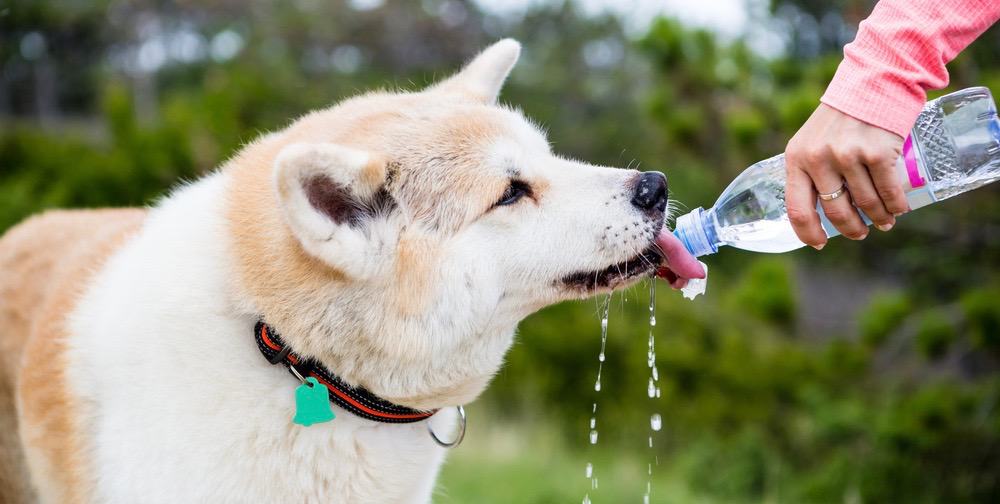
Ensure Easy Access Of Water
Remember that your dog is in a delicate situation so make it a simple task to drink water.
He may not be thirsty during the day, but he may want a drink at night, so ensure that the water is available throughout the day and night.
Also, many dogs are given an e-collar to protect them after surgery here. It is also called a “cone of shame”.
This serves as a deterrent for your dog when it comes to scratching or licking their wounds or sensitive areas. And also serves to reduce their movement so that they have a lesser chance of being injured.
The problem with this color is that it may stop your dog from consuming water. If you notice that your dog wants to drink water you should remove the cone and replace it after he is done drinking.
Also, remember to place the bowl in an easily accessible area so that he does not have to strain to take a drink.
Straining may cause pain in the area where the surgery was done and would discourage your dog from drinking any water.
Serve Him Broth
It may also be a good idea to give your dog a low sodium chicken broth or bone broth. Bone or chicken broth within the water may be encouraging for your dog.
This may encourage him to not just drink water but eat as well. Bone broth has nutrients that can benefit your dog during this time like gelatin and collagen. These are good for the stomach, joints, and liver.
If your dog is drinking a mixture of water and bone or chicken broth then this is a good sign. Just remember to make sure that it is low in sodium because your dog will already be dehydrated.
Sodium added to the mix will make matters even worse. Homemade broth may be the better option as you can control the amount of salt added.
You can then gradually reduce the amount of broth in the mixture and increase the amount of water.
Then when he is feeling a bit better you can reduce the broth and increase the amount of water. Keep doing this until it is just water again.
Serve Him Wet Food Instead Of Dry Food
If you usually create your dog kibble then you may need to switch things up after surgery. Kibble is quite dry, and you may have noticed that some dogs drink a ton of water right after they consume it.
There are a number of canned wet food available on the market that may suit your dog. The benefit of wet dog food is that your dog can benefit from the moisture especially if he is not drinking water.
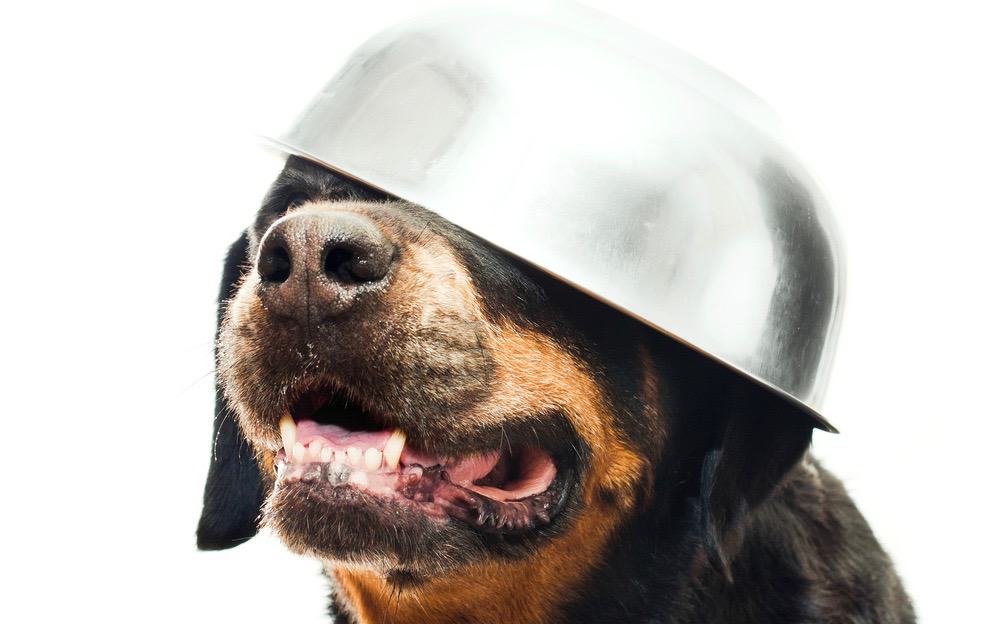
Canned wet food has a higher amount of moisture so that your dog inevitably takes in water by eating it. This will help him to be more hydrated.
For an added benefit you can also add water to this mixture, and he will have consumed some water without even noticing.
If all you have on hand is dry kibble then you can mix this with water into a soup-like consistency, so it will be as if he is eating wet food. Most dogs will love this.
Serve Him Ice Chips
To help your dog breathe, certain surgeries require that a tube be inserted into their throat. The result can be a lot of pain and rawness in the throat area. A sore throat may deter your dog from eating or drinking.
However, ice chips or cubes tend to soothe the throat while providing that essential hydration to your dog. He may not appreciate the ice chips at first, but you never know.
So give it a try and see how he responds. Also, you do not need to give him ice chips made of water you can give him a bone or chicken broth that are in an ice form and see how he reacts.
Use A Turkey Baster
It is not advised that you force your dog to consume water because they may vomit but in certain situations, you can try a turkey baster.
When you manually give your dog the water try to be as gentle as possible. Simply fill the syringe with water and do your best to tilt if your dog’s head upward. Get the syringe in the corner of his mouth and empty the contents.
There could be a chance that he does not vomit and this will be counted as a success. Repeat the process as many times as it takes to hydrate your dog properly.
If this does not work in 2 days then the only other option would be the veterinarian.
Correctly Place The Water Dish
Sometimes we may place the water bowl in an awkward position. Believe it or not, the correct height the water bowl should be placed is not on the floor.
The water should be placed in such a way that your dog does not have to bend their neck to reach it. They also should not have to tilt upward to have a drink.
Remember that your dog will be in a delicate position after surgery so bending and stretching may not be ideal and would cause pain. This will deter him from drinking water because it’s not placed correctly for him.
Make Sure The Water Dish Is Clean
This may seem like a simple matter, but it is quite important. Keeping your dog’s water bowl clean may help him to drink water. It will also keep him safe when he does.
Some dogs do not like drinking out of a dirty water dish. Clean off the residue that may have been accumulated inside and outside the water bowl before replacing it with fresh water at least once per day.
By doing this, you can encourage your dog to drink water and also protect him from harmful diseases that may have gotten into the water.
There are harmful worms and other insects that find themselves in your dog’s water bowl. At this delicate time, after surgery, this is the last thing that your dog needs.
FAQ’s
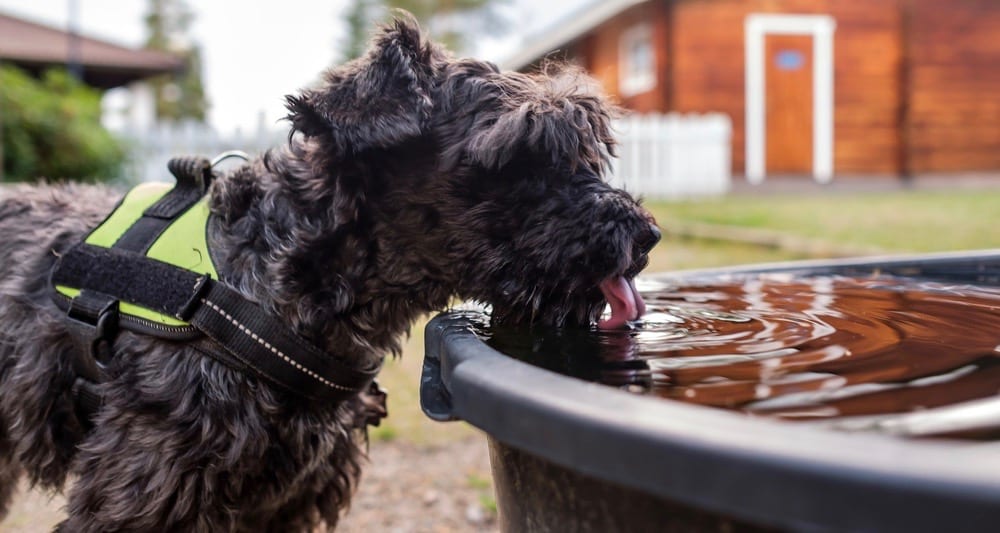
Is Aversion To Food Or Drink Normal After Surgery?
It is completely normal to notice an aversion to food and water in your dog after any surgery that involved anesthesia.
Many times dogs won’t eat until they are served their favorite foods since they lacked the motivation to eat in the first place.
The dehydration they may face if they don’t consume water is actually of greater concern.
If 2-3 days have passed without drinking water then a veterinarian should be consulted immediately. Not drinking water can lead to further health problems.
How Long Should I Wait Before I Contact the Veterinarian?
After two days of no water, your dog could start being at risk for serious dehydration, especially because they need their bodies to function properly so that they can heal from the surgery. If they consume kibble it would be even worse.
A typical dog can survive for about seventy-two hours without a drink of water. However, you will begin to notice the effects of dehydration after just 24 hours of dehydration.
Contact the vet when you notice any sign of dehydration or after two days.
How Long Until My Dog Is Back To Normal After Surgery?
There is no clear answer to this question because there are a wide variety of surgeries that may have been performed on your dog. More invasive surgeries require a longer recovery time.
Some dogs only take a few days before they are their usual selves. Other dogs who have undergone major surgery may take between 6 weeks to 4 months before they are up to their old ways.
It also depends on your dog’s state of overall health before surgery. You should definitely consult your veterinarian if you believe that the recovery process is taking too long.
Final Words
In most cases, you should not be concerned about your dog refusing to drink water for a day or two after surgery. He may be drawn to water on his own and drink in his own time.
You need to monitor him and ensure that he does not drive himself to thirst. Wait out the 2 days and if you see no changes then implement some of the methods we have outlined and call your veterinarian.
Surgery can be tricky for anyone including your dog. You may be worried if your dog who usually has a healthy appetite, stops eating and drinking altogether, but dogs tend to know what is best for them.
Sometimes animals fast for the betterment of their health. Remain calm until the necessary time has passed and then contact your veterinarian.

